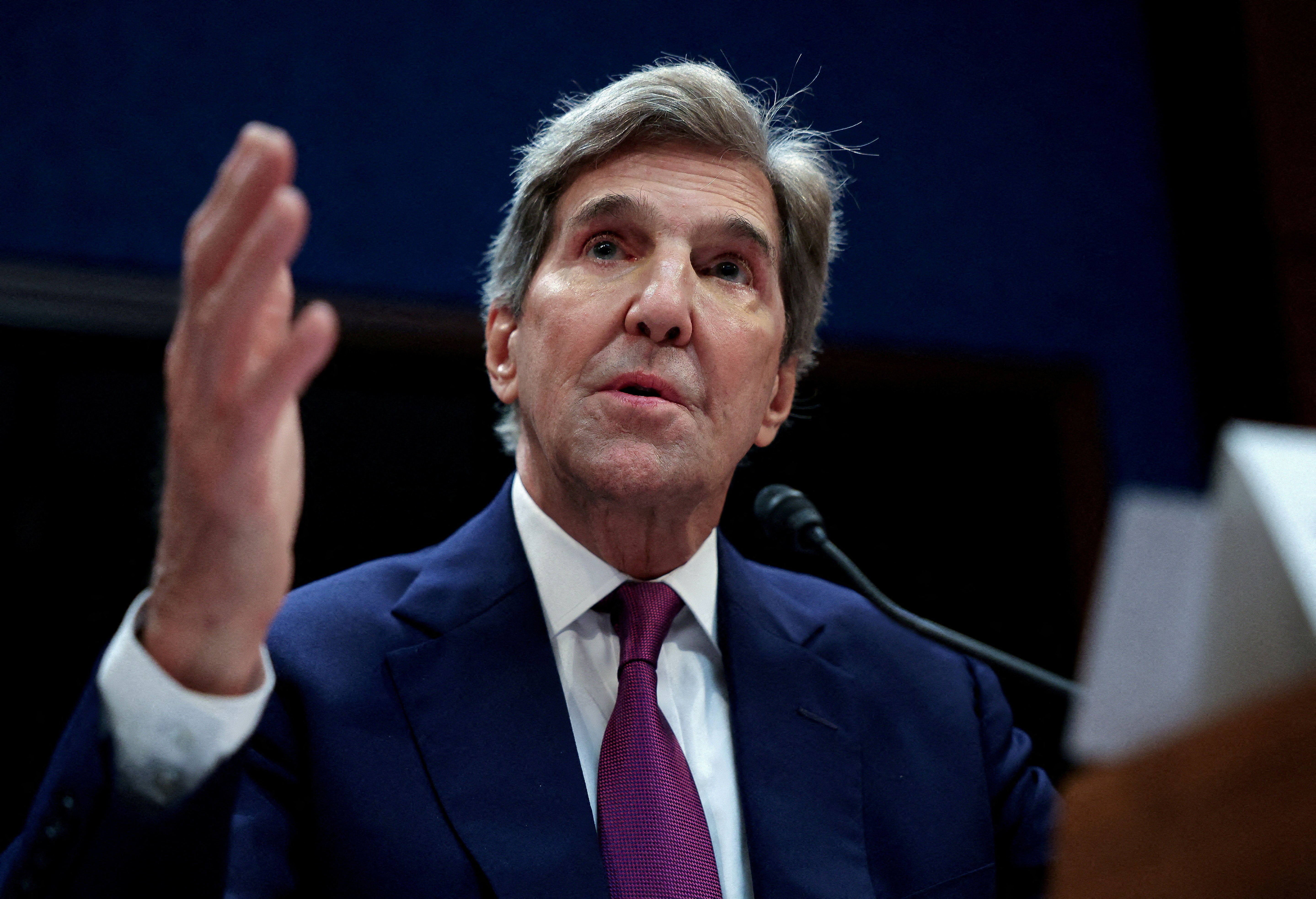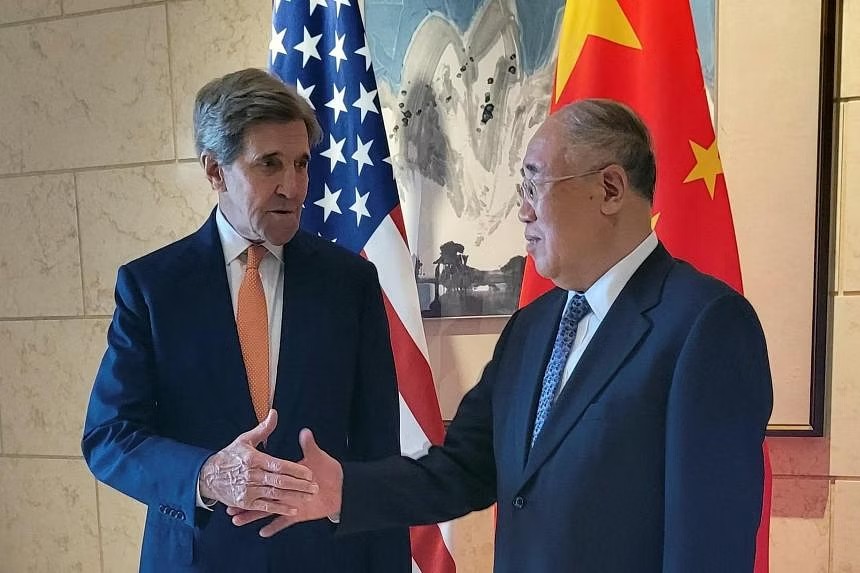BEIJING, China – U.S. climate envoy John Kerry said it was “imperative that China and the United States make real progress” in the four months before U.N.-sponsored climate talks begin in Dubai, as waves of extreme heat and rainfall hit large parts of the globe.
While Kerry met his counterpart Xie Zhenhua in the Chinese capital Beijing on Monday in efforts to rebuild trust between the world’s top two greenhouse gas emitters, severe heat warnings had been declared in Italy, Greece and the United States.
Floods have already killed 40 people in South Korea and at least five in the U.S. northeast, with unusually heavy rainfall in India also forcing the evacuation of hundreds of people in the capital New Delhi.

China has also experienced months of record-breaking heat and extreme weather, with readings at one weather station in the far northwestern region of Xinjiang on Sunday hitting an all-time high of 52.2 degrees Celsius (126 Fahrenheit).
“Floods and intensive storms happen with greater frequency than ever before … Fires devour millions of acres of forest every year,” Kerry said as delegates gathered in a conference room overlooking Beijing’s Forbidden City on Monday morning.
“It is toxic for both Chinese and for Americans and for people in every country on the planet.”
Kerry urged China to partner with the United States to cut methane emissions and reduce the climate impact of coal-fired power, with the two sides aiming to restore relations following a suspension in talks last year.
“In the next three days we hope we can begin taking some big steps that will send a signal to the world about the serious purpose of China and the United States to address a common risk, threat, challenge to all of humanity created by humans themselves,” Kerry said.
This week’s meetings, which will continue until Wednesday, will have no formal schedule but are expected to focus on the abatement of methane and other non-CO2 emissions, as well as the run-up to the COP28 global climate talks starting in November.
China’s reliance on coal is also likely to be on the agenda. Kerry praised the “incredible job” China has been doing in building up renewable energy capacity but said it had been undercut by the construction of new coal power plants.
China has pledged to start reducing coal consumption, but not until 2026, and new coal power project approvals have accelerated since last year.
“MUTUAL TRUST”
Kerry’s third visit to China as U.S. climate envoy marks the formal resumption in top-level climate diplomacy between the two countries. The former Secretary of State is the third U.S. official to visit Beijing in recent weeks as China and the U.S. aim to stabilise their broader bilateral relationship.
China’s Xie said on Monday that the two climate envoys could play a role in improving tense relations between the two countries.
The two met on Sunday night for a one-on-one dinner. Kerry complimented Xie for being back at work after overcoming illness. Both referred to each other as friends.
“Yesterday after we met each other, I did a little calculation,” Xie said. “I counted that since the two of us have been appointed special envoys, we have met 53 times.”
But despite cordial relations between the two veteran envoys, underlying tensions between the two sides could still hamper progress this week.
Talks were suspended last year following the visit of U.S. House of Representatives Speaker Nancy Pelosi to Taiwan, a democratically governed island that China claims.
Beijing has also accused the United States of unfairly criticising China’s climate record while failing to meet its own pledges, particularly when it comes to financing climate action in poorer countries.
China has also bristled at U.S. calls that it should do more to cut greenhouse gases, saying it is a developing country with historical emissions that remain significantly lower than those of the United States.
A senior State Department official said efforts to force developing countries to shoulder more of the burden of emission cutting will be a “point of contention” with China, which says it is inconsistent with the Paris agreement.
“I think that Kerry and Mr. Xie have a very strong partnership, they have mutual trust,” said Zhang Haibin, Associate Dean at the School of International Studies at Peking University.
“But you know, looking to the future … There is a lot of uncertainty. U.S. domestic politics is now in the next presidential election already. U.S. domestic politics is very complicated.”
Reporting by Valerie Volcovici, Andrew Hayley and the Beijing Newsroom; Writing by David Stanway; Editing by Sonali Paul and Jacqueline Wong
